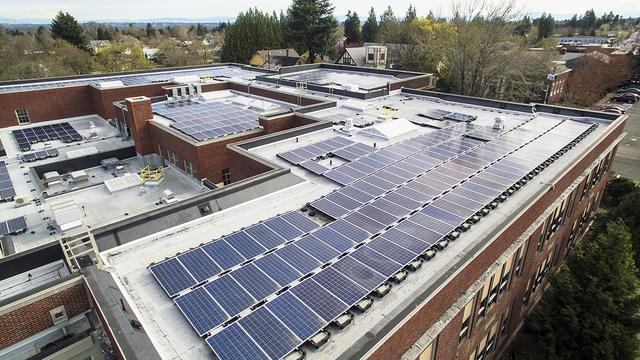While we all need and use energy, its impact on the lives of Minnesota residents differs considerably from household to household.
Geography, race, income, and housing quality all affect how Minnesotans use energy; the difference is clear when we look at average energy burden, or the percent of household income that is spent on non-transportation energy use.
Minnesota households who live below the federal poverty level have an energy burden of 16 percent, which is eight times the burden for the average Minnesotan. Despite paying significantly more of their income towards energy, these households more frequently experience difficulties accessing energy services and often have to choose between affording electricity and other basic necessities.
To address those disparities, the Institute on the Environment and Robert J. Jones Urban Research and Outreach-Engagement Center hosted “Energy and Equity in the Twin Cities,” a four-part workshop last fall that aimed to create pathways to energy justice via collaborations among a broad range of organizations.
More than 50 participants representing neighborhood associations, community-based organizations, justice and advocacy-focused NGOs, housing groups, renewable energy developers, utilities, state and local governments, and researchers, worked together over several weeks to establish a shared understanding of energy justice and the actions required to build it.
Gabe Chan, workshop chair and associate professor at the Humphrey School of Public Affairs, said collaboration among policymakers and community advocates is essential.
“Energy work too often privileges a certain kind of knowledge, which is often technical and exclusionary. We can’t afford to keep energy decisions only in the hands of those who have had the opportunity to develop deep engineering and economic ‘expertise,’” Chan said. “We used the space in the workshop to find common goals and new partnerships to cross the divides that stand in the way of the goals of energy justice.”
The workshop culminated in participants developing projects to address different aspects of energy justice in the Twin Cities. Five projects were awarded grants of up to $10,000 to begin their work.
Chan and another Humphrey School faculty member, Elise Harrington, are supporting two of the winning projects.
Solar for Schools Programming
Chan is a member of this team, which aims to build on existing efforts to engage and develop student leaders in energy, build on existing efforts to collect and deploy solar curriculum in schools across Minnesota, and learn from examples of success. It will do this by supporting implementers of Minnesota’s Solar for Schools program, which stimulates the installation of solar energy systems at public schools and the integration of renewable energy use into school curricula.
Other team members represent the Minnesota Department of Commerce, Clean Energy Resource Teams (CERTs), the Environmental Quality Board, MIGIZI , and Native Sun.
Energy Navigator Landscape Assessment
Humphrey School Assistant Professor Elise Harrington is co-leader of this project, which aims to make it easier for low-income households to access energy efficiency programs and services. The team will identify effective outreach methods and program approaches to support the development, integration, and piloting of an “energy navigators” program. Such programs are designed to help community members learn about ways they can reduce their energy use and energy bills, and use renewable forms of energy to heat and power their homes.
Other team members represent the Citizens Utility Board Minnesota, Minnesota Community Action Partnership (MinnCAP), Environmental and Energy Study Institute, Regional Sustainable Development Partnerships (RSDP), CERTs, and Xcel Energy.
Read about all five winning projects.
Adapted from this story published by the Institute on the Environment.
The Energy & Equity in the Twin Cities Workshop was supported by Xcel Energy and the McKnight Foundation.


